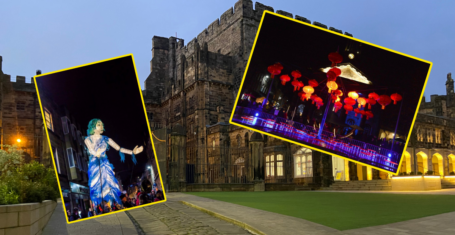
Lancaster SU calls on uni to stop using Turnitin over fears it falsely detects ChatGPT use
‘Our Advice Service has seen AI feature in nearly half of the plagiarism cases we have seen’
Lancaster University Students’ Union has called on the university to stop using Turnitin’s AI detection tool amid fears it is wrongly accusing some students of using ChatGPT.
Outgoing LUSU Vice-President for Education, Noah Katz, told The Lancaster Tab that the union’s advice team has dealt with 23 cases of students being accused of using AI in an assessment since 1st March.
In an open letter published yesterday, Lancaster University Students’ Union (LUSU) said: “On the basis of the cases we are handling, we know that Turnitin’s claim that the tool is 98 per cent accurate cannot be true.”
Other UK top 10 universities, such as Durham, Edinburgh, Manchester, and Cambridge do not use the technology to detect AI use.
Turnitin’s Chief Product Officer, Anna Chechitelli, defended the company. She told The Lancaster Tab: “Turnitin does not determine what constitutes proper use of AI or academic misconduct, that is determined by the educator and the parameters of the assessment”.
The open letter details claims that within the SU over the year, there have been regular discussions with the university regarding the use of AI within summer exams with attempts from the SU to discourage any “knee-jerk reactions” from the university to the “threat” that AI poses. However, despite these attempts, the VP Education and Students’ Union are “disappointed” that many departments have been “actively” using this AI technology, which is causing students to be “wrongly flagged” for plagiarism.
The letter, signed off by Katz and new VP Education, Sam Hedges, argued Lancaster University’s “highly-skilled markers” should be able to detect plagiarism attempts of their accord.
AI detectors work through analysing writing style via a machine learning technology which allows them to learn human writing styles to detect non-human writing.
Noah Katz told the Lancaster Tab they were led to release the letter as a result of the “massive influx of advice casework, coupled with the work both I and our voice team have been doing all year”. They are calling for “proper” use of the AI technology, as they acknowledge that it is here to stay.
Katz said: “Since March 1st, our Advice Service has seen AI feature in nearly half of the plagiarism cases we have seen (23/48 total) – this number has gone up since we drafted the statement at the end of last week”. They went on to say that Turnitin themselves have stated that the technology “isn’t perfect”. As a result, the use of the technology has caused “a significant volume of work for both our Service and the University’s Academic Conduct teams that could very easily be avoided”.
They added: “It’s important that the University listen to us and turn off the feature as it’s causing unnecessary anxiety for students and leading to resource that could be better spent on supporting students being used to punish them.”
Anna Chechitelli, Turnitin’s Chief Product Officer, told The Lancaster Tab: “Our system does not flag improper use of AI in assessment, rather it indicates the presence of statistical signatures consistent with AI writing. Turnitin does not determine what constitutes proper use of AI or academic misconduct, that is determined by the educator and the parameters of the assessment. Our AI detection feature points to areas within academic writing that may bear further attention from the educator and perhaps conversation with the student about what, if any generative AI tools were used.
“In the age of generative AI, detection is just one step in the academic integrity process”, and that only the academic bodies themselves can make the call as to the appropriateness of the “use of Ai writing tools”, and whether or not they will allow the usage or further the investigation. “This small, but important distinction highlights the importance of human engagement and interaction to provide guardrails around the proper and responsible use of AI in education.
“As the technology evolves, we continue to evolve with it – through enhancements to our detection capability as well as our guidance and resources on generative AI and AI writing detection.”
A spokesperson for Lancaster University said: “The University does not comment on the tools and techniques we use to detect academic misconduct. However, we are clear that a finding of academic misconduct is only made after investigation and always on the basis of academic judgement.”









































